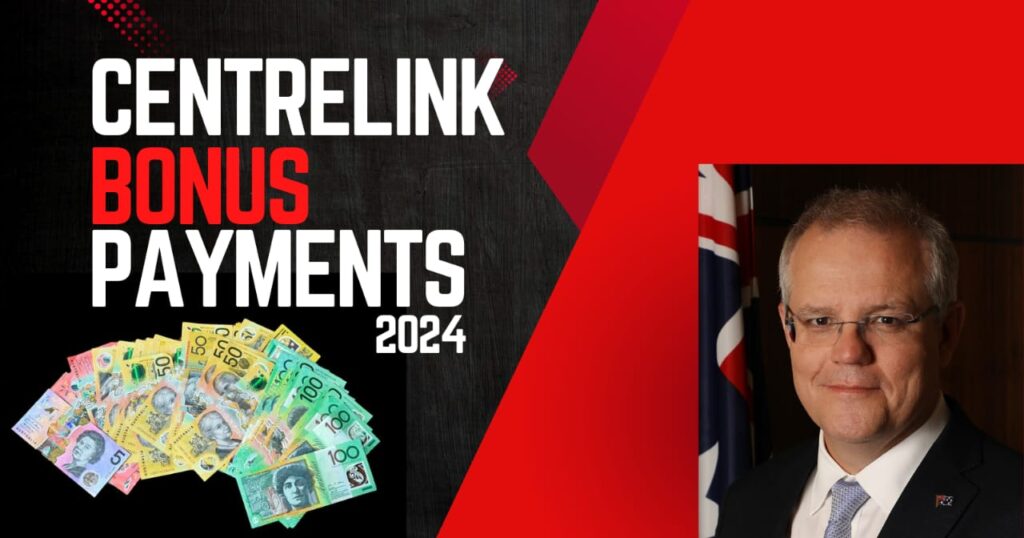Centrelink bonus payments have always been a source of financial aid for eligible Australians, providing extra support during challenging times. However, in 2024, there is a growing wave of misinformation and scams surrounding these payments. From the socalled “Centrelink 890 bonus payment” to fabricated $3000 bonuses, these claims are causing confusion and putting people at risk. This article aims to clear up the confusion and help you distinguish real Centrelink support from fake schemes.
What Are Centrelink Bonus Payments?
Centrelink bonus payments are occasional one-off or periodic payments provided by the Australian government to assist certain groups during tough times. These payments are usually given alongside regular benefits like the Age Pension, Disability Support Pension, or Family Tax Benefit and are intended to provide extra financial relief during specific events.
Types of Legitimate Centrelink Bonus Payments:
- Emergency Relief Payments: Provided during natural disasters like floods, bushfires, or other crises.
- Economic Support Payments: Offered during times of economic instability to help maintain household income.
- Pension Work Bonus: Allows Age Pension recipients to earn additional income without affecting their pension.
Common Centrelink Bonus Payment Scams in 2024
In 2024, several fraudulent schemes have surfaced. Here’s a quick look at the most common ones:
- Centrelink 890 Bonus Payment: This payment does not exist. Scammers use this fake scheme to trick people into providing personal and bank details.
- $400 Centrelink Bonus Payment: Widely mentioned in fake articles but has no backing from Centrelink.
- $3000 Centrelink Bonus Payment: A fabricated payment with no legitimate source, designed to create confusion and lure victims.
- $600 centrelink cash boost

Real vs. Fake Centrelink Payments
Here’s a quick comparison to help you distinguish between legitimate Centrelink bonus payments and fake ones:
| Criteria | Legitimate Payments | Fake Payments |
|---|---|---|
| Source | Official Centrelink website, myGov | Unverified blogs, suspicious emails, social media posts |
| Eligibility Criteria | Clearly defined on the official site | Vague or no criteria mentioned |
| Application Process | Through Centrelink/myGov portal | External links, suspicious URLs |
| Payment Amount | Fixed and reasonable (e.g., $250-500) | Unrealistically high (e.g., $3000, $4000) |
| Contact Information | Verified Centrelink contacts | Personal emails, unusual phone numbers |
| Request for Sensitive Info | No, unless through secure portals | Yes, usually via SMS, email, or social media messages |
When Are Legitimate Centrelink Bonus Payments Issued?
Legitimate Centrelink bonus payments are announced during government budget releases or as part of specific relief packages during emergencies or economic downturns. For example:
- COVID-19 Economic Support Payments: Issued during the pandemic.
- Bushfire Relief Payments: Provided for families impacted by natural disasters.
Who Qualifies for Legitimate Centrelink Bonus Payments?
Eligibility usually depends on income, assets, and personal circumstances. Here are the most common eligible groups:
- Pensioners: Age and disability pension recipients.
- Jobseekers: Individuals actively looking for work.
- Families: Single parents or families facing financial stress.
Always verify eligibility details directly from servicesaustralia.gov.au.
What to Do If You’re Targeted by a Centrelink Scam
If you suspect you’ve encountered a scam or shared your information, take these steps immediately:
- Report to Scamwatch: Visit Scamwatch to report the scam.
- Contact Centrelink Directly: Use the official numbers listed on the Centrelink site to alert them.
- Change Your Passwords: Update your myGov, email, and bank passwords if you think your information has been compromised.
- Monitor Your Bank Accounts: Check for any suspicious activity and alert your bank if you notice anything unusual.
Impact of Falling for Centrelink Payment Scams
Falling for these scams can result in serious consequences, including:
- Identity Theft: Scammers can use your personal information to open bank accounts, apply for loans, or commit other types of fraud in your name.
- Financial Loss: Sharing bank account details can lead to unauthorized withdrawals and loss of money.
- Emotional Stress: Victims of scams often suffer from stress, anxiety, and a loss of trust in legitimate government services.
Conclusion
We’ve unpacked everything you need to know about Centrelink bonus payments and the scams floating around in 2024. From exposing fake payments like the “Centrelink 890 Bonus” to helping you understand what legitimate Centrelink payments look like, we hope this guide gave you the full picture. The reality is clear: there are no genuine Centrelink bonus payments this year.
